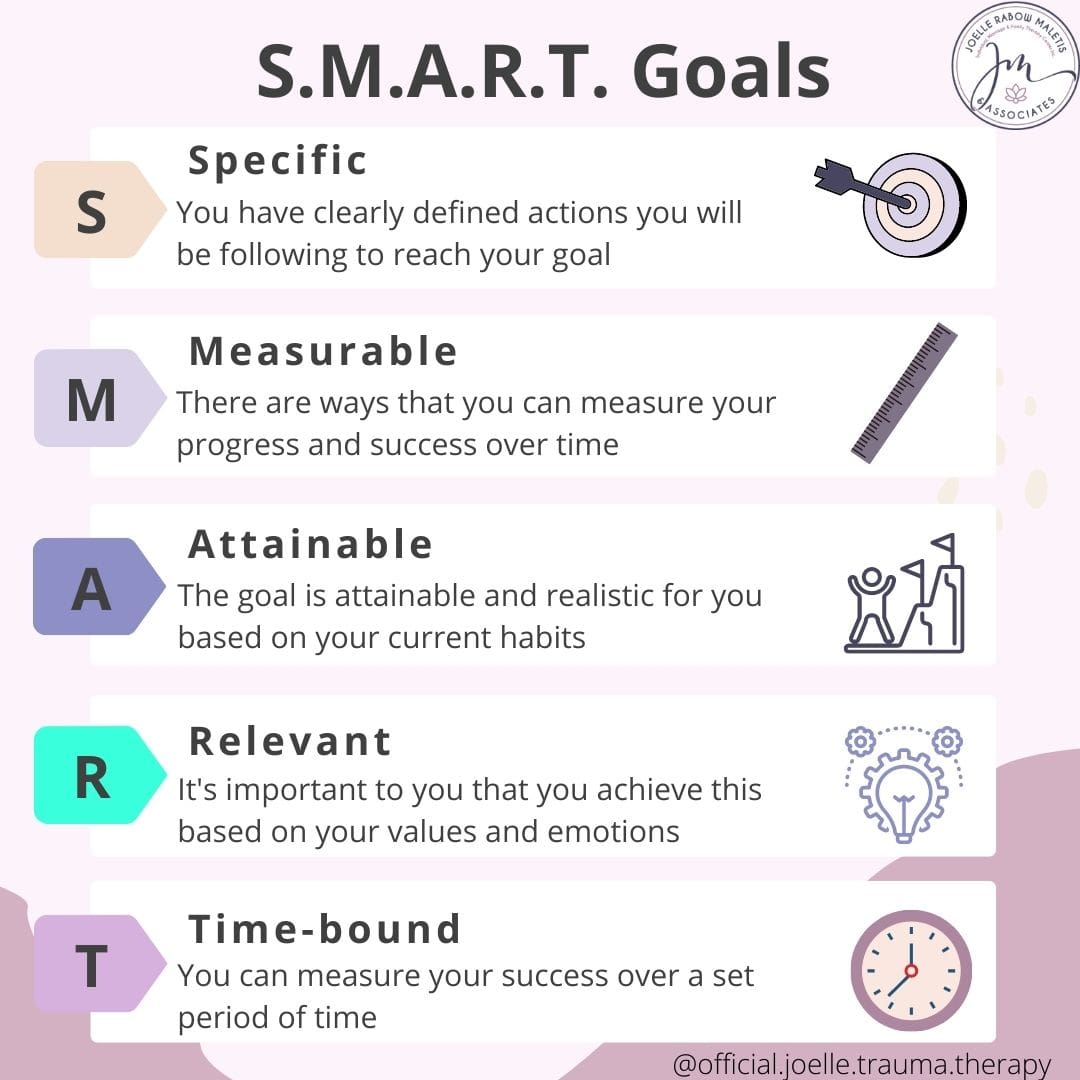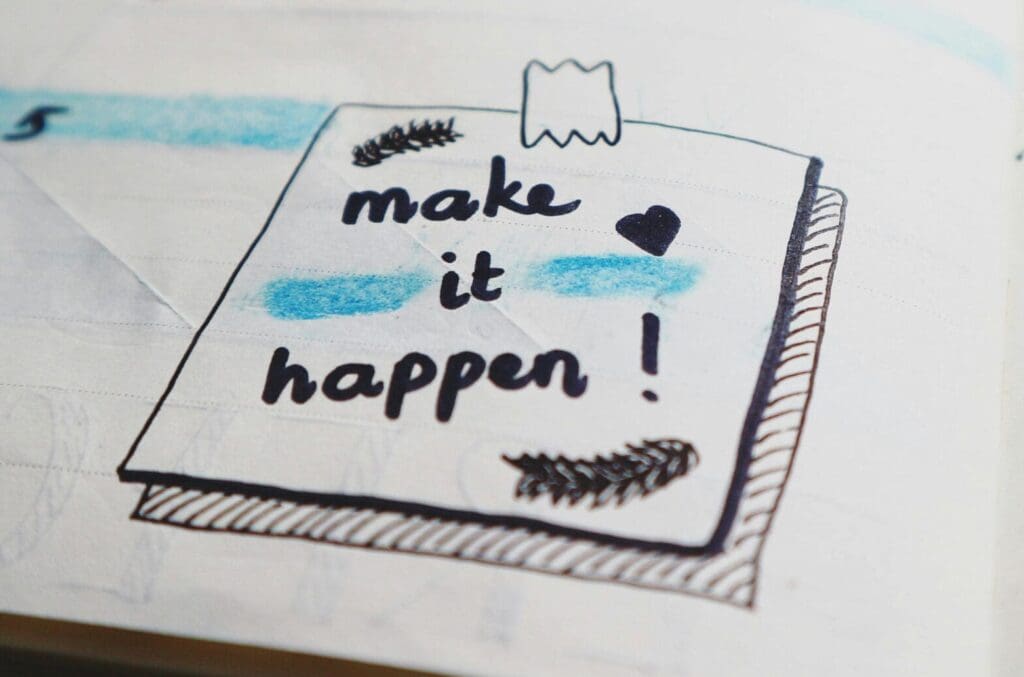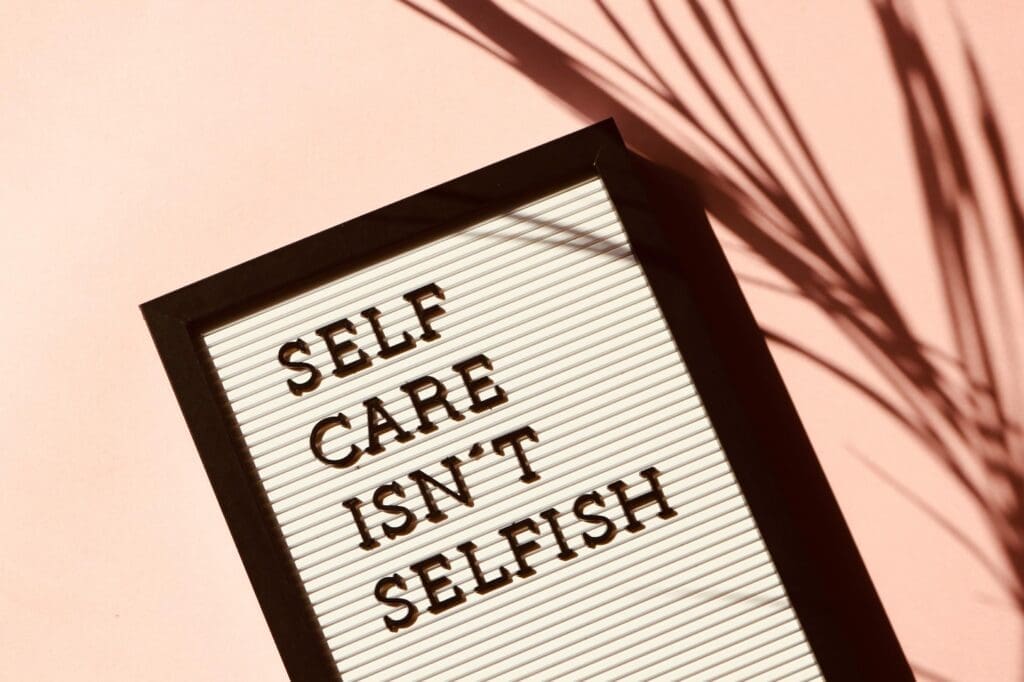The 3 Reasons Your Resolutions Are Failing and What You Can Do About It
By: Alyssa Bombacino & Joelle Rabow Maletis
As the New Year approaches, many of us set goals for the year ahead. We often make plans to exercise more, eat healthier, save money, or spend more time with family and friends. A 2016 study from a scientific journal reveals that 55% of New Year’s resolutions were “health related, such as exercising more, or eating healthier” (Dodgson, 2018). Ideally, when we set these goals we are hoping to achieve long-term sustainable change. So how come most New Year’s Resolutions are given up by mid-January? (Morin, 2019).
3 Reasons Why Your Resolutions Are Failing
The type of goals we set may be contributing to this. For example, goals that are unrealistic are less likely to be sustained and kept up in the long run. Likewise, goals that are too vague, make it impossible for you to track our progress and hold yourself accountable. Keep reading to find out why your resolutions are failing and what you can do to change them!
- You’re Framing Them Negatively
Thoughts impact our perceptions, judgements, and ultimately our reality! Therefore, your motivation towards a goal will be influenced subconsciously by your feelings about it and your belief in yourself to attain it. In other words, the way you structure your resolutions makes a big difference in how likely you are to keep them. You have a higher chance of failing when you frame your goals negatively, and try to avoid doing something. By avoiding something, you are not focusing on skill development or adding positive things into your routine which makes the goal harder to implement and keep up in the future.
- Your Goals Are Unrealistic
An analysis of New Year’s Resolution failures found that 35% of those who failed had set unrealistic goals (Discover Happy Habits, 2022). It is important to note that large changes over a short period of time are less sustainable than small changes. It is more likely that you will stick with a positive pattern if you make small changes each day. Even if it’s just doing something for 10-15 minutes a day that you don’t normally do, this behavior will become more familiar to you over time. When you set goals that are too high, such as practicing something every day for an extended period, you are less likely to do it regularly.
- Your Goals Are Too Vague
We often fail to achieve our resolutions because they are too vague. Vague resolutions tend to result in little to no action and instead create confusion and frustration. It’s important to have a clear understanding of the goal that you are working towards and an idea of how you will measure it before you begin. This will increase your chances of meeting your goals, give you a sense of direction, and help you organize and reach your goals.
Ways To Set Strong Resolutions
So how do you set resolutions that are sustainable and right for you? Planning, planning, planning! The best way to achieve your resolution is to develop a detailed plan in advance and implement small changes early on.
- Step 1: Create Goals That Are SMART:
Specific, Measurable, Attainable, Relevant, and Time-bound.
For example, if you decide you want to get more sleep each night, how will you achieve this goal? How will you know you have reached this goal? How does it fit in with your current schedule and habits? It’s important to ask yourself these questions when setting goals so that you can determine if they are realistic, measure your progress, and hold yourself accountable for meeting them. Setting a time frame will also motivate you to get started.
S- Specific
You have clearly defined actions you will be following to reach your goal.
M- Measurable
There are ways that you can measure your progress and success over time.
A- Attainable
The goal is attainable and realistic for you based on your current habits.
R- Relevant
It’s important to you that you achieve this based on your values and emotions.
T- Time-bound
You can measure your success over a set period of time.

Step 2: Start Small
As soon as you have your goal(s), write them down and ask yourself if they are realistic for you. If not, start with smaller steps. Instead of going to the gym seven days a week, start by exercising a few days a week instead. If you would like to eat healthier, try incorporating more healthy foods that you already enjoy, like fruit or yogurt, instead of changing your whole diet. Psychologist Lynn Bufka states, “Setting small, attainable goals throughout the year, instead of a singular, overwhelming goal on January 1 can help you reach whatever it is you strive for.”(American Psychological Association Editorial Contributors, 2019). By making small and steady changes we are most likely to develop and sustain new skills over time.
- Step 3: Frame Your Goal In a Positive Way
According to Stockholm University researchers, resolutions that involved adopting a new habit rather than quitting something were 25% more likely to succeed (Oscarsson et al., 2020). Carlbring suggests, “Instead of stopping things, you should start doing things” (Oscarsson et al., 2020). If your New Year’s resolution is to eat healthier, it’s more helpful to set the goal of eating one fruit daily instead of avoiding junk food altogether. It is more likely for goals focused on achieving positive outcomes to be successful than goals aimed at avoiding negative outcomes. Instead of avoiding doing things that are already a part of your routine, think about what new activities you can adopt to create positive change.
Let us know what tips you found most useful! We wish you well and good health during this time!
For more helpful information on New Year’s Resolutions and goal setting, be sure to check out the Bi-Polar Girl Podcast Episode, “New Year’s Resolutions? We Hate Them!” featuring Joelle Rabow Maletis.
At JRM&A we lead with compassionate, trauma-informed therapeutic models that are personalized and solution-focused to help support our clients needs and attain their personal goals.
You can reach us at (650)-386-6753 or info@joellerabowmaletis to share your comments, ask questions or schedule an appointment.
Resources
Dodgson, Lindsay. (2018, January 7). The psychology behind why we’re so bad at keeping New Year’s resolutions. Business Insider. Retrieved December 20, 2022, from https://www.businessinsider.com/the-psychology-behind-why-we-cant-keep-new-years-resolutions-2018-1#:~:text=A%20valiant%20effort.,with%20getting%20out%20of%20debt.
Morin, A. (2019, December 31). This is why most New Year’s resolutions fail. Psychology Today. Retrieved December 20, 2022, from https://www.psychologytoday.com/us/blog/what-mentally-strong-people-dont-do/201912/is-why-most-new-years-resolutions-fail#:~:text=A%20study%20by%20researchers%20at,on%20your%20lack%20of%20willpower.
Discover Happy Habits. (2022, August 22). New Year’s Resolution Statistics (2022 Updated). Discover Happy Habits. Retrieved December 20, 2022, from https://discoverhappyhabits.com/new-years-resolution-statistics/#:~:text=In%20one%202014%20study%2C%2035,they%20made%20too%20many%20resolutions.
American Psychological Association Editorial Contributors. (2019, November 10). Making Your New Year’s Resolution Stick. American Psychological Association. Retrieved December 20, 2022, from https://www.apa.org/topics/behavioral-health/new-year-resolutions.
Oscarsson, Martin, et al. (2019, December 9). A large-scale experiment on New Year’s resolutions: approach-oriented goals are more successful than avoidance-oriented goals. PLOS ONE. Retrieved December 20, 2022, from https://journals.plos.org/plosone/article?id=10.1371%2Fjournal.pone.0234097.




